One German historian said a wonderful phrase many years ago: “History doesn’t know the word ‘if,'” and he was absolutely right. However, many people have always been interested in alternative paths of human development and eagerly fantasized – what would’ve happened if, let’s say, Columbus hadn’t found funding for his expedition, or the attack on Pearl Harbor had failed?
In fact, there are many key moments in the development of humanity, after which all of history went down a completely different path – for better or for worse. And it’s precisely such moments – completely serious or ridiculously absurd – that our selection of stories and facts today is dedicated to.
More info: Reddit

#1

In late WWII:
* Americans are worried that the Germans will start deploying chemical weapons against Allied soldiers in Europe
* The US secretly ship a bunch of mustard gas munitions to a port in the US-controlled part of Italy, just in case they’ll need them
* The Luftwaffe shows up unexpectedly and bombs the ship loaded with mustard gas which explodes spectacularly
* Hundreds die, thousands suffer horrible chemical burns and get poisoned
* Doctors struggle to treat the wounded since the US military won’t tell them what their patients were exposed to (the whole mustard gas thing was super secret)
* Intense studies of how exactly this mystery chemical affects the human body ensue
* Someone realizes that the mystery chemical kills cancerous cells much faster than it kills healthy cells
* They realize they can deliberately expose cancer patients to a dilute version of this chemical to treat cancer
* Chemotherapy is invented.
#2

Poland’s Solidarity movement started when a shipyard director tried to fire a cleaning lady close to retirement because she voiced her anger about food shortages. Solidarity movement in Poland was also a defining moment of the fall of the communist regimes in Eastern Europe.
#3

A small bakery accident in Thomas Farriner’s shop (possibly just an unattended oven or candle) set off the Great Fire of London. It destroyed most of the medieval city, but weirdly led to a better-planned modern London afterward.
One baker forgot to blow out a flame… goodbye, London.
A thread appeared in the AskReddit community literally a day ago, the author of which, the user u/E1ite, asked netizens the question: “What is the smallest human accident that had the largest impact in history?” In just over a day, it collected more than 4.7K upvotes and over 2.1K various comments, both really serious and slightly sarcastic.
From the first people to pick up a crafted stick or start a fire, to YouTube launch in 2005 – welcome to a not-ultimate but definitely very interesting collection of key moments in human history, made for you by We!
#4

It was thousands of years ago that Ug the caveman accidentally left some fruit out in the sun, perhaps in a primitive pot, and it went rotten in the Sun. Instead of throwing it away like a normal person, he drank the foul-smelling concoction, vomited profusely, staggered around like an idiot for a few hours, then slept for a full day, awakening with a crushing headache. Somehow, he then persuaded all his friends to try it. Thus was booze invented.
#5

In 1945, Percy Spencer was standing near a magnetron and the candy bar in his pocket started to melt. Now we can all have cold food in hot bowls as a result.
#6
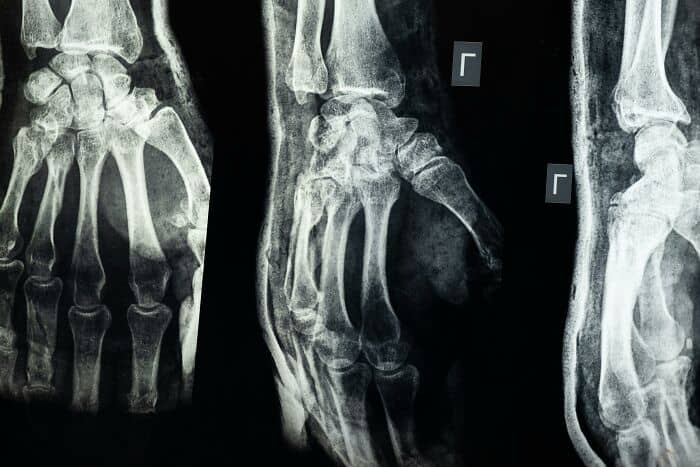
The discovery of X-rays. Wilhelm Röntgen noticed a screen glowing by accident while experimenting with cathode rays, and realized he was looking at something totally new.
Interestingly, one of the most paradoxical, albeit popular, points of view given in our collection is how just one small fire in a private bakery (possibly just an overturned candle) caused the Great Fire of London in September 1666.
It’s believed that there were not so many victims – at least, this is what the official history claims – but out of almost 80 thousand people in the British capital, about 72 thousand people actually lost their homes. On the other hand, just one overturned candle served as an incentive for a large-scale restructuring of London, which eventually turned it into a huge metropolis of our time.
For example, in Paris, a similar process was delayed until the mid-19th century, when a determined official, Baron Haussmann, was needed to demolish the outdated slums in the historic center of the city and build the majestic avenues and squares that Paris is so famous for nowadays.
#7
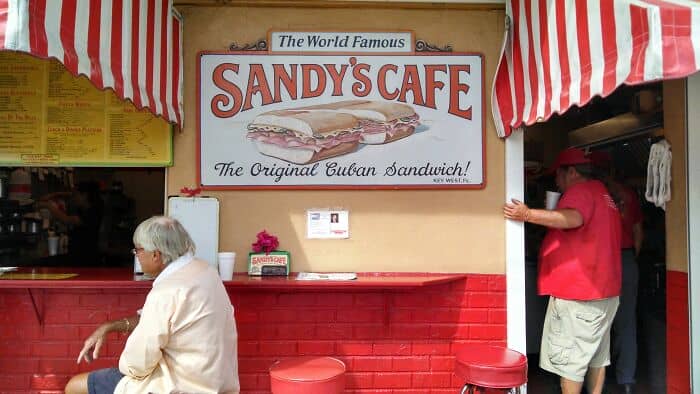
An assassin stopped for a sandwich, then saw his target driving past him in an open topped car, having taken a wrong turn.
… And that’s how WW1 kicks off.
#8

Maybe penicillin.
Glittering-Water495 replied:
Yea I was guna say Fleming who left a petri dish out in his lab one weekend and came back to discover antibiotics, quite possibly the biggest game changer in human history (modern history at least)
#9

The simple act of doctors and flowing to normal people is washing your hands specially when in contact with blood I think that simple thing has saved billions of lives through out history.
A separate category of stories told here comprises mistakes made in the process of research, or unexpected “spin-offs” – when scientists tried to do or invent one thing (also very useful, to be honest), but as a result made a side discovery that was much more famous and widespread in the end.
Classic examples are Chinese alchemists a thousand years ago, who tried to find a magic remedy for immortality, or at least prolongation of life, and found gunpowder. Or the well-known Viagra, which was discovered as a side effect during research on blood pressure meds.
From the most recent stories, there’s Ozempic, which also appeared as a result of the development of special meds for diabetes that had completely unexpected side effects. Science, despite its apparent order and impeccable judgments, can sometimes be completely unpredictable.
#10

The addition of sulfur to natural rubber by Charles Goodyear. He accidentally dropped a mixture of rubber and sulfur onto a hot stove, discovering that it hardened and became elastic and durable.
#11

Some guy in middle east got tape worms by not cooking pork properly and now one third of world population don’t touch it .
#12

The guy Plunkett trying to create a new refrigerant for dupont found his experiment had polymerized. Bam, tetrafluorethylene (Teflon) discovered and the advent of forever chemicals which are now found in every continent, every drop of rain, in most animals, and appears to be reducing fertility across all species.
By the way, among the most famous (and incredibly useful) discoveries made by mistake is actually penicillin, which appeared largely due to the simultaneous forgetfulness and observation of Alexander Fleming. Forgetfulness – because his laboratory was in disarray, allowing a whole colony of mold to grow in a forgotten lab dish.
Observation – because the scientist didn’t simply go and wash the dish, but immediately compared what he saw with his research, and realized that he was on the verge of a great discovery. A discovery that, in fact, saved millions of human lives.
Fleming himself modestly but fairly assessed the consequences of his discovery later, saying, “When I woke up just after dawn on September 28, 1928, I certainly didn’t plan to revolutionize all medicine by discovering the world’s first antibiotic, or bacteria k****r. But I suppose that was exactly what I did.”
#13
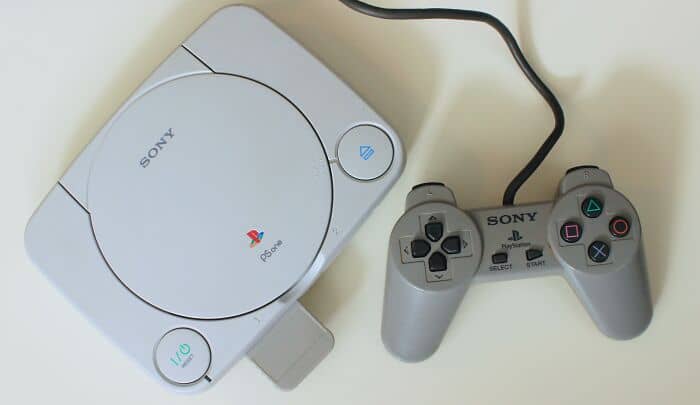
Small fry but
Nintendo ask Sony to develop a cd drive for their SNES. Nintendo pull out but Sony think, we’ve just so far, let’s tidy it up and release it. Hence, the PlayStation one.
Without Nintendo’s invitation, Sony would not be in the video game business.
#14

An East German official was meant to say they were easing travel restrictions over time, he accidentally said they were easing them immediately and the Berlin Wall was mobbed by joyful people becoming one of the major events of German reunification and helping trigger / precipitate other end of the Cold war events.
Just_Condition3516 replied:
lil correction: he did not say anything accidentally, but just read the note as it was intended to. the accident was, that the note was supposed to be read the next day, so boarder guards would have already been instructed.
#15

Pfizer working on blood pressure meds, accidently discovered viagra and you know the rest.
However, great discoveries weren’t always appreciated during the lifetime of scientists. Well, we’re not even talking about Galileo or Copernicus, who lived in the Middle Ages.
In the mid-19th century, which is widely associated with rapid progress, the Hungarian doctor Ignaz Semmelweis discovered the causes of childbirth fever, which, according to statistics, took the lives of almost 60% of patients and babies in those days.
It cannot be said that Semmelweis came up with something truly grandiose – he just suggested that obstetricians sterilize their own hands, and thus he instantly reduced the mortality rate during childbirth to 0.85%. But do you think that the fabulous discovery that actually saved no fewer lives than penicillin brought him worldwide fame? No way!
The medical community, realizing that Semmelweis’s ingeniously simple discovery essentially exposed them as the culprits of numerous deaths, radically opposed the innovations and, moreover, tried to expose the doctor himself as a charlatan and a madman. For some time, they succeeded – and it cost Semmelweis his reputation and his entire life.
But two decades later, bacteria and pathogens were discovered – and doctors were literally forced to disinfect their hands. But all the glory went to Louis Pasteur, and Ignaz Semmelweis remained a half-forgotten genius ahead of his time…
#16

Fermentation; alcohol, dough , cheese were all key survival elements.
#17
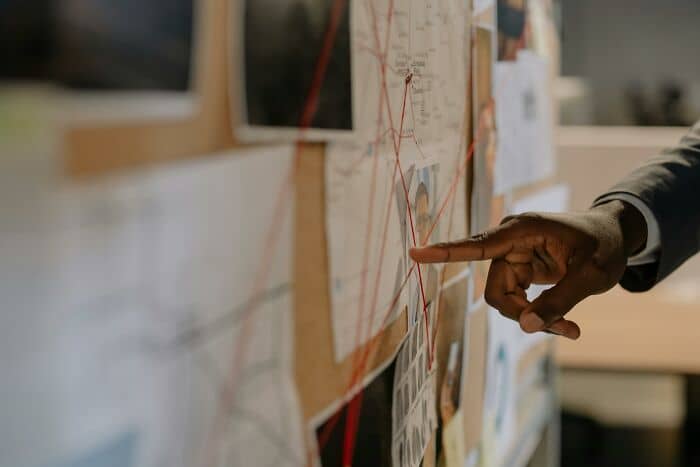
In 1945, at the Soviet embassy compound in Ottawa, Canada, the wife of a senior official complained about the crying baby next door and asked her husband to have the family moved somewhere else.
Since there were no other rooms at the compound, the baby’s father, a cipher clerk named Igor Gouzenko, was permitted to move his family into an apartment offsite.
After he and his wife (now pregnant with their second child) got to experience a very different kind of life in Canada, and fearful of his impending recall to the Soviet Union, Gouzenko eventually stole a stack of papers from embassy and offered them to the Canadian government in exchange sanctuary for him and his family.
The papers revealed that the Soviets had built up an extensive spy ring in Canada and the US, even when they were supposedly wartime allies.
This incident helped kick off the Cold War and the Red Scare, and very likely would not have happened if Gouzenko and his family were still living on the compound.
#18

Two people bumped into each other and one guy’s chocolate bar landed in the other guy’s peanut butter.
Be that as it may, in the history of humanity, and the whole Earth too, it’s just impossible to single out any one turning point after which life went in a completely different direction. On the other hand, it’s even better – because as a result, we get a much more interesting history.
So now, please, our dear readers, feel free to read this selection of facts and tales to the very end, and maybe add your own ideas on the crucial points in human history in the comments below. In the end, the more fascinating or simply witty stories, the better.
#19

A thousand years ago in China, some alchemist was mixing ingredients together, trying to make a life-extending potion.
He heated the mixture which caught on fire and burned extremely violently.
**BOOM!** Primitive gunpowder was invented.
#20
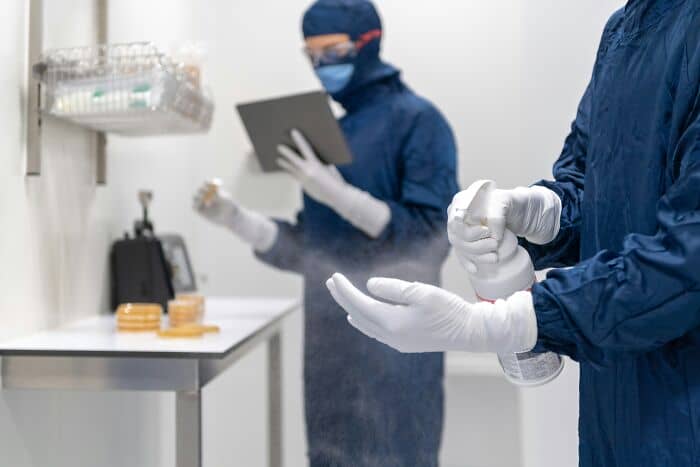
A safety test helped collapse the Soviet Union.
#21
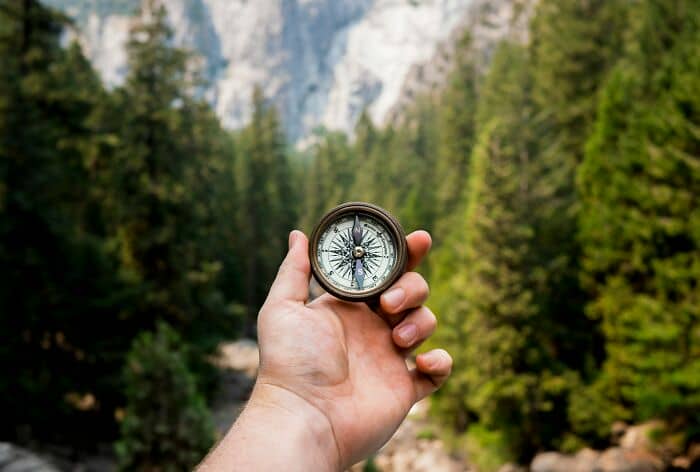
I don’t understand why the answer to this question isn’t always “Oersteds compass.”
Oersteds was getting ready to give a lecture. He was going to talk about electricity. He was also going to talk about magnetism. When he accidentally completed a circuit near a compass on the table, the compass needle jumped.
This was the moment that showed humanity that electricity and magnetism were the same thing. From that unexpected jump off the compass came every generator and electric motor that we use today.
#22
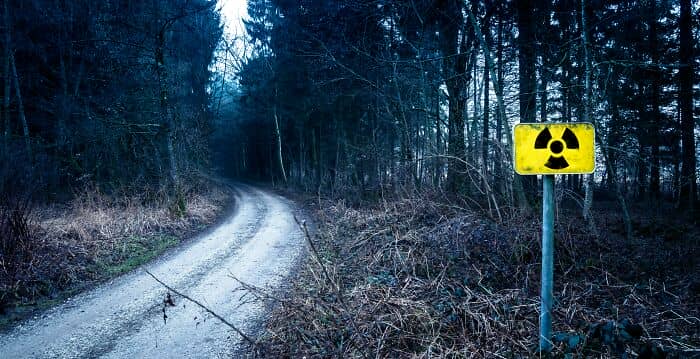
A scientist using a f*****g screwdriver to test a radioactive core gave us a look at what radiation poisoning can do to the human body.
#23
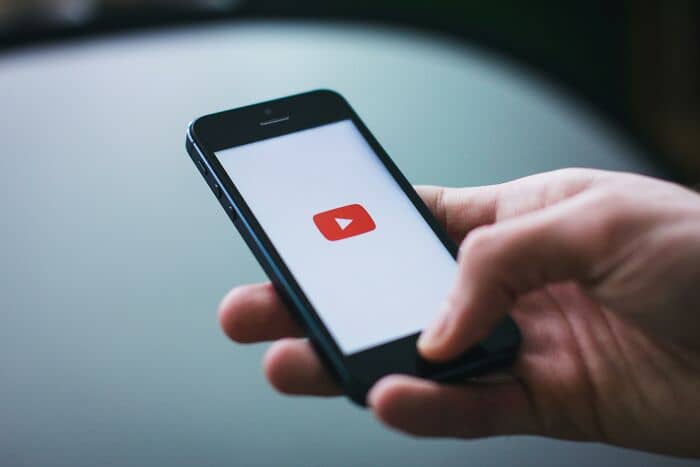
Janet Jackson’s wardrobe malfunction at the 2004 NFL halftime show had a huge part in the the creation of Youtube. The founders were frustrated at not being able for the video online so they decided to create their own video sharing site. A lot of modern culture stems from Youtube, from the influencer/content creator culture to our consumption of video content on social media to how studios and record labels sell their wares. Even Facebook timed their release a few days after the incident to capitalize on its publicity using the site.
#24

Molasses flood of Boston is up there. It gave us modern engineering requirements and building codes. Has saved tens of thousands to millions of lives in the last 106 years. .
#25

Around 12,000 years ago, long before kings or cities or farms, a foraging woman wandered the fields near her clan’s camp. She gathered nuts, berries, and wild grains, food she knew her people could eat. On the way back, some slipped from her bundle into the mud. Maybe she didn’t notice. Maybe the ground was too wet to bother picking them up. Either way, she moved on.
Weeks later, her clan returned to the old campsite. Walking the same path, she saw something new: the very plants she once harvested were sprouting where she had dropped her food.
And then she had an idea.
From one accident — spilled seeds — came the realization that the earth itself could be persuaded to feed us. And with that discovery, the long wandering of humankind began to end.
#26

Adding lead to petrol.
#27

However COVID patient zero first got it has got to be up there.
#28
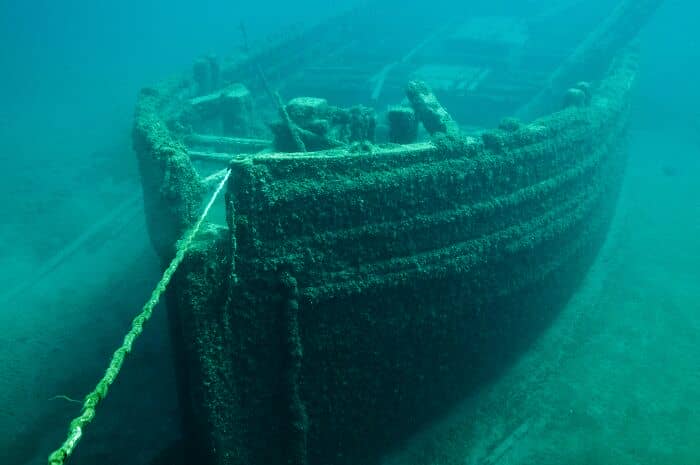
Probably the Titanic. Just one ship not slowing down for ice warnings and it changed history. A single iceberg hit turned into one of the most famous disasters ever.
Then fast forward a century and people repeat history with OceanGate.
#29

When some proto- human cave dweller thought ‘ I wonder what will happen if I rub these two sticks together vigorously ?’.